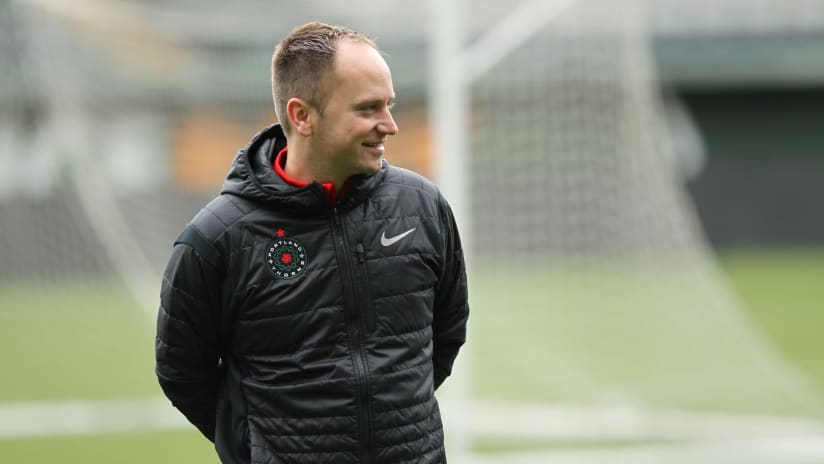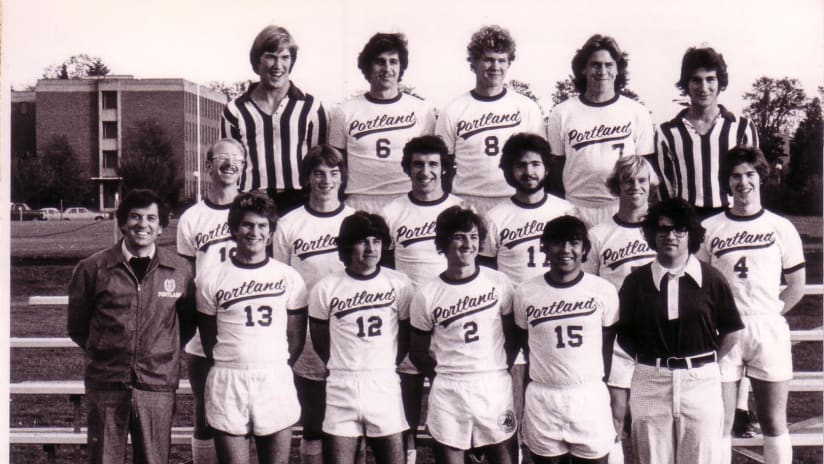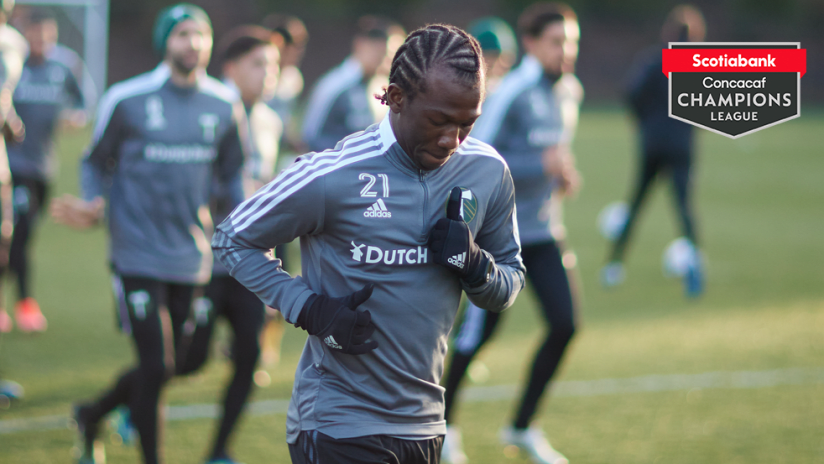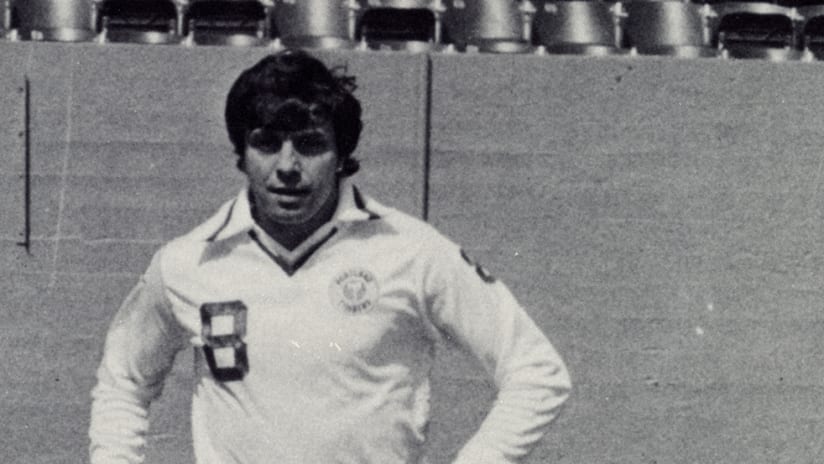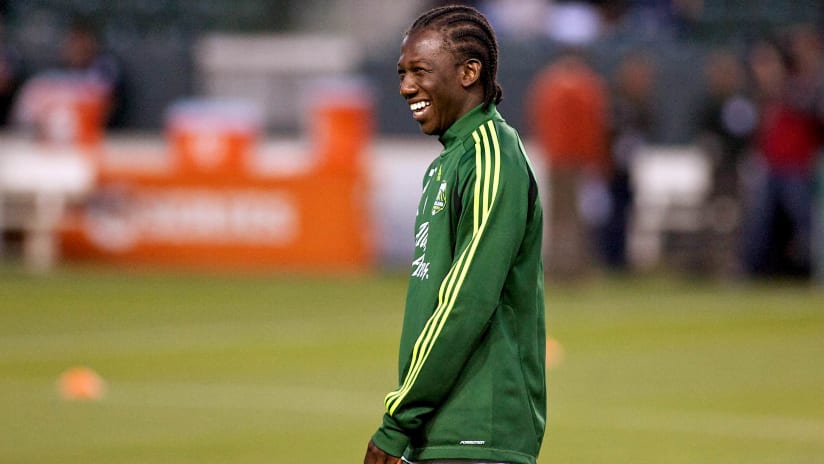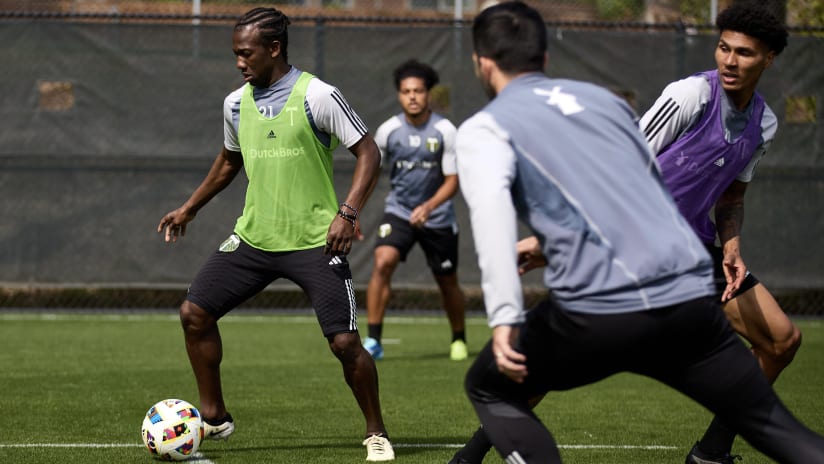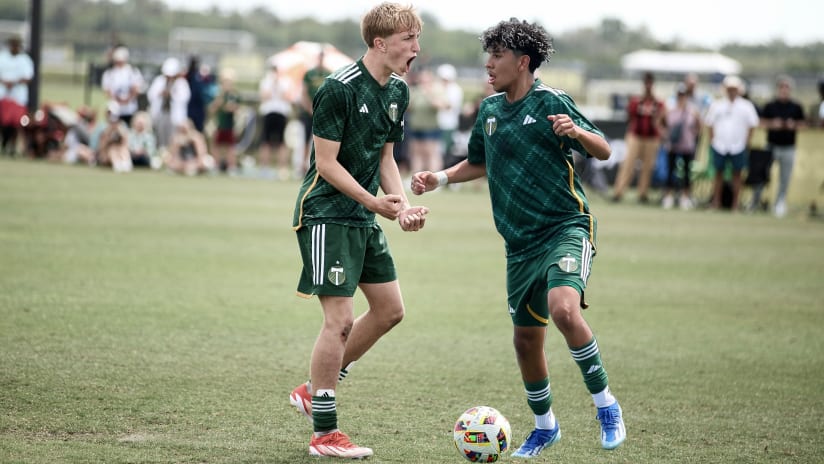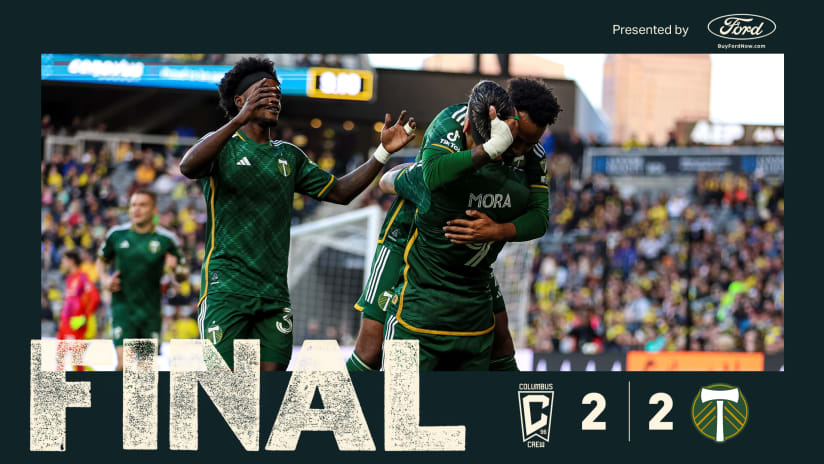PORTLAND, Ore. – When Portland Thorns FC head coach Mark Parsons was only 11 years-old, he was already displaying signs of a future career in coaching.
The Cranleigh, England native remembers how as a kid he would run down to the pay phone at the end of his block and call up his friends to organize impromptu 4v4 and 5v5 soccer matches in his backyard. The boys used Parsons' father's lawn ornaments as goalposts and often broke first-floor windows with their errant passes.
“Once the summer hit, there wasn't a single blade of grass on that little yard, just mud, just dirt because we played every single day,” Parsons recalls.
The self-reliant young Parsons began formally coaching his first team, a local U-10 boys club, at age 14. He was still two years away from joining his first professional club, Woking F.C., as a player.
“I think I wanted to go out and help,” Parsons remembers. “I was probably causing more damage than good at that age.
“I remember coaching these 10 year-olds like….pass, pass, pass. And I watched a video [on Facebook] and it's literally kick, touch, kick, touch. Grass is long and the pitch is horrible. We score and I run down the sideline….That was me.”
The people around Parsons – his club team coach, his friends, his father – often pointed out the teenager's evident passion for coaching, but Parsons resented the notion that he take up coaching over his budding playing career.
“When I was playing for [Woking F.C.], they loaned me to a lower division first team,” Parsons says. “I remember I missed a semi-final because the U-12 boys had a league game. There was no way I was missing my U-12 [team].
“My dad used to say to me at the time, 'Mark, you love your coaching more than playing.' I'm like, 'No I don't! I'm going to be the best player in the world!' This was me at 16. He's like, 'You just picked a U-12 boys league game over your club's semi-final.'”
That passion remains undimmed as Parsons, now 29 years-old and one of the youngest head coaches in American professional sports, leads his second professional team since first taking over the NWSL's Washington Spirit midway through a tumultuous 2013 season.
Yet Parsons' age belies the wealth of experience that he has accumulated since those early days with his U-10 team.
At 18 years-old, Parsons took his first major coaching job with Chelsea F.C., working in the team's camps, recreation, and community program. In his first year with the London club, Parsons worked an hour a week for no pay, spending his own money to commute from his home in Cranleigh to the team's training grounds in Cobham, Surrey.
Despite these challenges, Parsons thrived at Chelsea, working with players of both genders at nearly every age group. While still in his early 20s, Parsons became the girls academy director at the club and the head coach of the Chelsea Ladies reserves.
Parsons, though, looks back at his time at Chelsea as a massive learning experience, one small step towards a much bigger goal. Still, he cherishes most the time he spent working in the community program.
“While I spent a lot of time on the elite side [at Chelsea], my biggest memories are from working with all age groups, all kids from different backgrounds and I think it helped me get a better understanding of how to get the best out of people,” he says.
In 2010, Parsons got his first real chance to run a club, taking over as technical director of the Culpeper Soccer Association in Culpeper, Va.
Within a mere three years and after a part-time stint with the D.C. United Women, Parsons went from rural Culpeper to head coach of the Washington Spirit, a dramatic rise for a coach who never imagined that he'd coach professionally so soon and who earnestly believes that he was unprepared for the challenge of professional player management.
“You're never ready,” he says of first-time head coaches. “I wasn't ready. There's no way I was ready. I thought I was at the time, [but] the reality is I wasn't.”
But Parsons learned quickly.
After the 2013 Spirit won two of their final three matches – having won only one match all season up to that point – Parsons shed his interim tag and became the Spirit's full-time head coach. Despite low expectations from the public and the media, Parsons led a Spirit team that finished dead last in the league in 2013 to the 2014 NWSL playoffs.
“The thing that always pushes me through is just this desire to want to improve, want to learn, want to help people, want to help myself understand and get better, strive to constantly get better,” he says. “I've had a growth mindset from a young age. Failure doesn't [scare] me. Not improving scares the hell out of me.”
Parsons now finds himself on the opposite coast with what may be his biggest coaching challenge yet.
“I'm as excited to see this team come together as a core team, playing good football, as [I am to see them] come together as people,” he says of this Thorns team. “This is going to be a very good, tight group of people that is going to build something special on and off the field.
“That's not a guess….I know that [these players] all have similar ambitions and similar interests, and they've got this core character trait of wanting to be the best and winning and they value how important each other is in that process.”
For Parsons, the new position is a dream, but he approaches the task with the same passion and enthusiasm that he first brought to that U-10 club in England and which he's brought to every team he's ever worked with.
“One of the best compliments I ever got…. a parent came up and said, 'Mark, I'm just in awe. You coach everyone with the same passion. I've seen you coach a 5 year-old and it looks like it means the world to you and now I've seen you coach the [Spirit] and it looks like it means the world to you and everything in between.'
“I hold on to that.”

